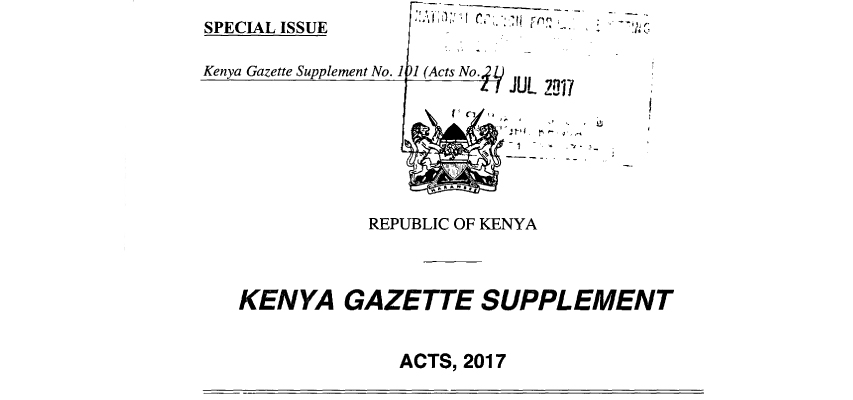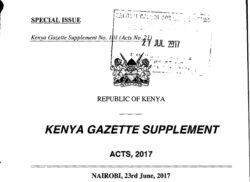
The success of Universal Health Coverage (UHC) is dependent on PPPs. Such partnerships are only possible where they are backed by laws that protect the interests of the public.
The Health Act 2017 is one such law.
Part XIII of the Health Act details how the Government will engage private players in the health sector. In addition to outlining how the Ministry of Health implements policies to encourage growth of private health services, and the licensing of private hospitals, clinics and other related institutions, the Health Act 2017 also allows the Government to ensure that they meet the required standards.
The Cabinet Secretary is empowered to pursue strategies conducive to the development and regulation of private health services and their attunement to the needs of the population.
But it is the section on Partnership Agreements that is key. Under it, both the national and county governments are allowed to sign partnerships with companies in the private sector to develop capacity in specialised health services and facilities.
Such partnerships are subject to the provisions of the Public, Private Partnerships Act (No. 15 of 2013), under which the Cabinet Secretary and the County Governors can seal partnership agreements with companies in the private sector to develop specific services or facilities that serve the needs of public health.
The Public, Private Partnerships Act is an important legislation, especially Part V of the Act, because it clearly lays out the procedures for the National and County governments to enter into PPPs for financing, construction, operation, equipping or maintenance of the infrastructure or development of facilities or provision of services to the Government.
No PPP is possible without a sector diagnostic study to define the following:
- Technical issues;
- Legal, regulatory and technical frameworks;
- Institutional and capacity status;
- Commercial, financial and economic issues; and,
- Such other issues as the Cabinet Secretary may stipulate.
The Health Act and the Public Private Partnerships Act are proof that the Government is focused on ensuring the pillars supporting Universal Health Coverage are in place.
When measured against international standards, Kenya has established a sterling reputation in PPPs. A report by the World Bank, Benchmarking PPP Procurement 2017, ranked Kenya in the top 10 among 20 Sub-Saharan Africa (SSA) countries.
Because the Constitution has devolved a significant chunk of health services to County governments, the Public, Private Partnerships Amendment Bill 2018 seeks to ensure the National Government consults with County governments on issues concerning key infrastructure and services, such as health facilities, county roads, water and sanitation services, and waste management.
It will ensure that counties’ lists of priorities for health, based on the County Integrated Development Plans (CIDP), are given due consideration in consultation with the National Government.
More significantly, amendments in the Bill seek to close a weak area of governance that was identified in relation to privately initiated partnerships (PIPs) to make them more competitive where there are sole bids or unsolicited PPP proposals.
